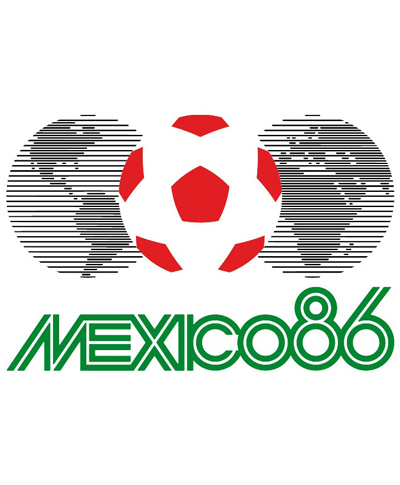The history of the thirteenth World Cup in 1986. Rejection by Colombia and subsidiary Mexico, criticism of the Argentine coach Bilardo, boycott of the Portuguese national team, sensational Morocco team, three penalty shootouts in the quarterfinals,
World Championship 1986
Summary: The failure of Colombia and the subsidiary Mexico, criticism of the Argentine coach Bilardo, the boycott of the Portuguese national team, the sensational team of Morocco, three penalty shootouts in the quarterfinals, the “goal of the century” and the “hand of God”, refereeing mistakes and the championship of Argentina.
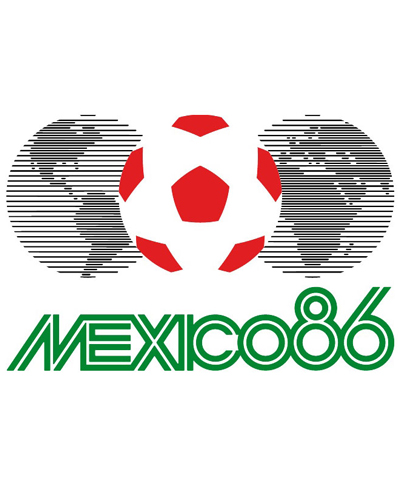
The country: Mexico.
Final stadium: Azteca.
Winner: Argentina.
The best player: Diego Maradona.
Top scorer: Gary Lineker.
Best Goalkeeper: Tony Schumacher.
Best Young Player: Enzo Shifo.
Prize : Brazil.
Mascot: Pique.
Ball: Azteca.

The history of the thirteenth championship of the planet began back in 1974. On June 9, the FIFA Congress met in Stockholm. In addition to organizational issues regarding the future of the World Cup, the functionaries decided to change the name of their meetings. From now on, FIFA was assembled by the Executive Committee, not Congress. It is noteworthy that only one country, Colombia, claimed to host the next World Cup. Everything went on as usual, but on November 5, 1982, after the end of the twelfth tournament, FIFA received a letter from the Colombian side, which contained a request to cancel the World Cup. Colombia was overwhelmed with financial problems, and she completely failed preparations for hosting the competition. The organizers had no choice but to convene a new council and receive applications from other applicants. Canada, Mexico and the USA became the new members of the FIFA voting. The decision was announced on May 20, 1983 in Stockholm. It was decided to hold the elections anonymously, so as not to upset the party in a hurry. The number of voters was also decided not to be made public. Despite all the measures, FIFA's decision did not come as a surprise. Mexico received the right to host the World Cup. Aztecs immediately put the entire infrastructure in order, and welcomed the World Cup. True, and Mexico almost became a refusenik. The fact is that eight months before the start of the World Cup, a strong earthquake occurred in Central America, which claimed the lives of 25,000 people. Nevertheless, the Mexicans managed to recover from the impact of the elements, and prepare in time for the adoption of the football beau monde.
The rules of the tournament have undergone minor changes. It was decided to increase the second group stage to 16 teams. For this, the four best teams were selected, which took third place in their quartets.
The mascot of the championship was Pique – a chili pepper, dressed in a sombrero and national uniform.
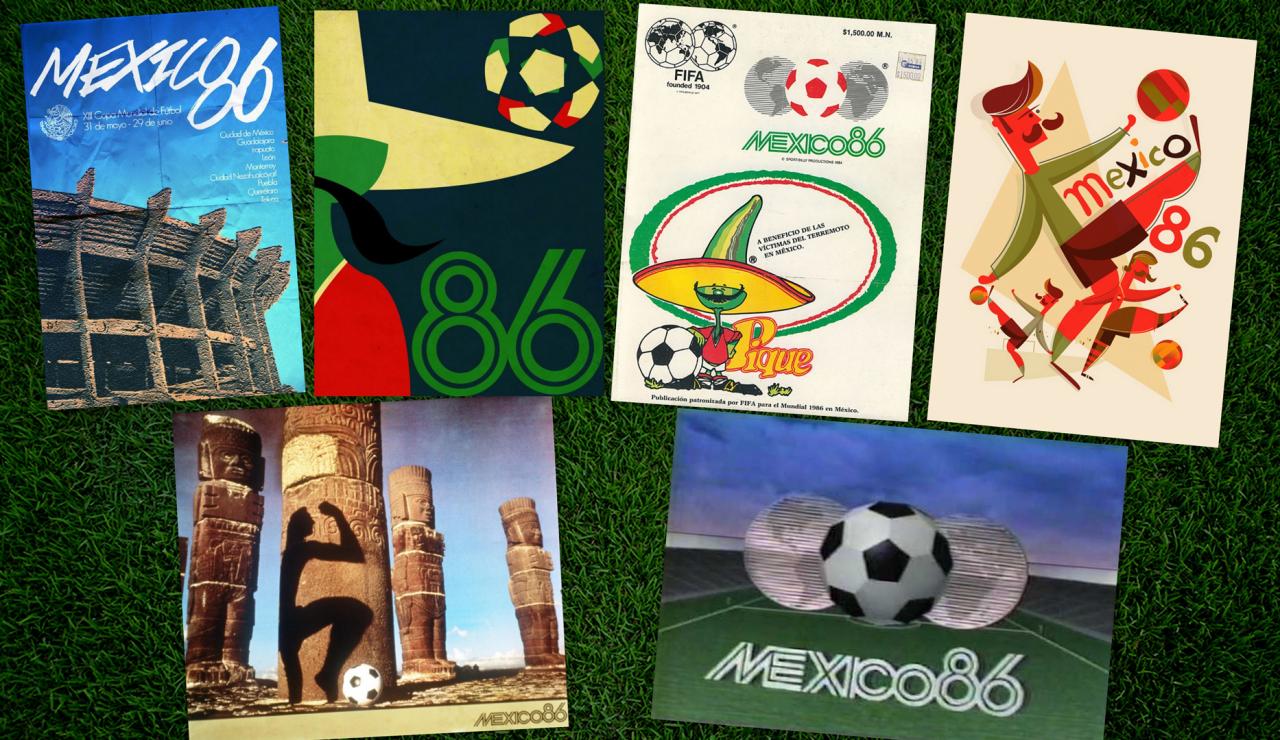
The qualifying tournament for the World Cup was not too full of unexpected results.In the first group, the Poles finished first, ahead of the Belgian team by better goal difference. The Belgians themselves went to a play-off with a UEFA representative. The second group consisted of five teams that competed for two trips to Mexico. The winners of the group were the Germans from Germany, and the Portuguese were in second place. The British, led by Terry Butcher 1 , and the Northern Irish passed their group quite easily. Representatives of Foggy Albion came out victorious in matches with Romanians, Finns and Turks. From the fifth group, the French and Bulgarians entered the World Cup, who had no competitors among the Germans from the GDR, Yugoslavs and Luxembourgers. The Dutch, in a tough fight with the Austrians and Cypriots, took second place in group 5, but got only into the play-off with the Belgian national team. The Hungarians secured a direct entry into the championship. The sixth five was won by the Danes, who got to the World Championship for the first time in their history. The USSR national team went to the world championship from the second position. The final qualifying group was won by the Spaniards. The Scots, who took second place, got into a play-off with a representative of the OFC confederation. These very representatives were the Australians, who coped rather casually with the teams of Israel, New Zealand and Taiwan. The victory in the junctions was celebrated by the highlanders. The same matches, but in the UEFA zone, ended with the victory of the orange Dutch team.
There were no sensations in the CONMEBOL confederation. The Argentines, Brazilians and Uruguayans won their respective qualifying groups, while another four Latin American teams met in the play-offs. In a stubborn confrontation with the Colombians, Peruvians and Chileans, the Paraguayans celebrated victory.
Once again, representatives of CONCACAF excelled. The sieve of the qualifying stage consisted of two rounds. At the first stage, the best teams were Costa Ricans, Canadians and Hondurans. In the face-to-face confrontation between these teams, the best were the players of Canada, who made it to the World Cup for the first time in their history.
The Asian part of the championship was held in a rather tense struggle. In zone A, the team of Iraq scored a victory. Zone B was won by South Korean players.
However, the African part was marked by the longest draw. As many as four stages were needed in order to identify the strongest team in the face of the Moroccan team.
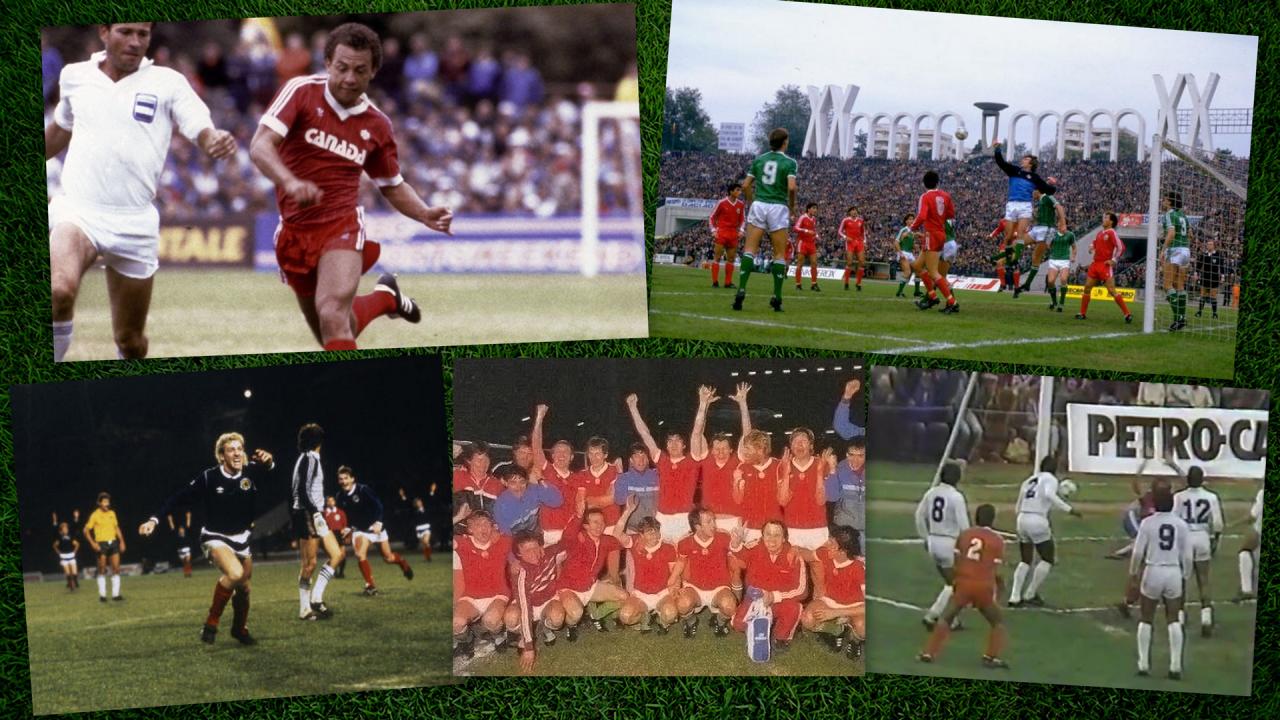
Six groups with teams ready to fight for the main trophy of the World Cup were traditionally determined by lot.
The first quartet of teams consisted of Argentines, Italians, Bulgarians and South Koreans.
Albiceleste was led by Carlos Bilardo. In fairness, it should be noted that in relation to Bilardo, the players spoke of him as an extremely weak specialist. For example, already at the end of the championship, Diego Maradona will say the following: “Before the start of the 1986 World Cup, the state of the team was catastrophic.We lost friendly matches to not the strongest clubs.
Bilardo gave instructions that no one understood. After his installations, we still had to translate his words for us. Ask Valdano if you don't believe me. He went out on the field and did not know what to do. The same goes for Buruchchagi. So Bilardo's merits in the fact that the albiceleste won the world title, no. The players did everything, and I myself played the way I saw fit.” The goal was defended by Neri Pumpido, who was famous for his unusually strong and accurate, for a goalkeeper, passes to partners. To the surprise of many fans, Daniel Passarella was forced out by Luis Brown, José Cuchuffa 2, Julio Olartikoechea and Oscar Ruggieri. There have been some changes in the central line of the Argentina national team. Ricardo Giusti was transferred to the support zone, which allowed Diego Maradona to show his best game. The attack was played by the permanent Jorge Valdano.
The Italian national team for the third time in history came to the World Cup under the leadership of Enzo Bearzot. The Squadra Azzurra was an unusually powerful team. Giovanni Galli played in goal. The defense was strengthened by Pietro Verkhovod 3 . The midfield featured the ageless Conti, Baresi and di Genaro. The attacking trio consisted of Vialli, Altobelli and Galderisi.
Bulgarian Ivan Vutsov, assembling a team for the world championship, faced a lack of competition within the team. Of course, only four players from Bulgaria's application did not play at the tournament, but Vucov could not find a worthy combination.
The Asian Tigers had one notable player in their roster – Cha Beom Geun. The South Korean player became the first player from his country to move to the German league. Gyn played for Bayer 04.
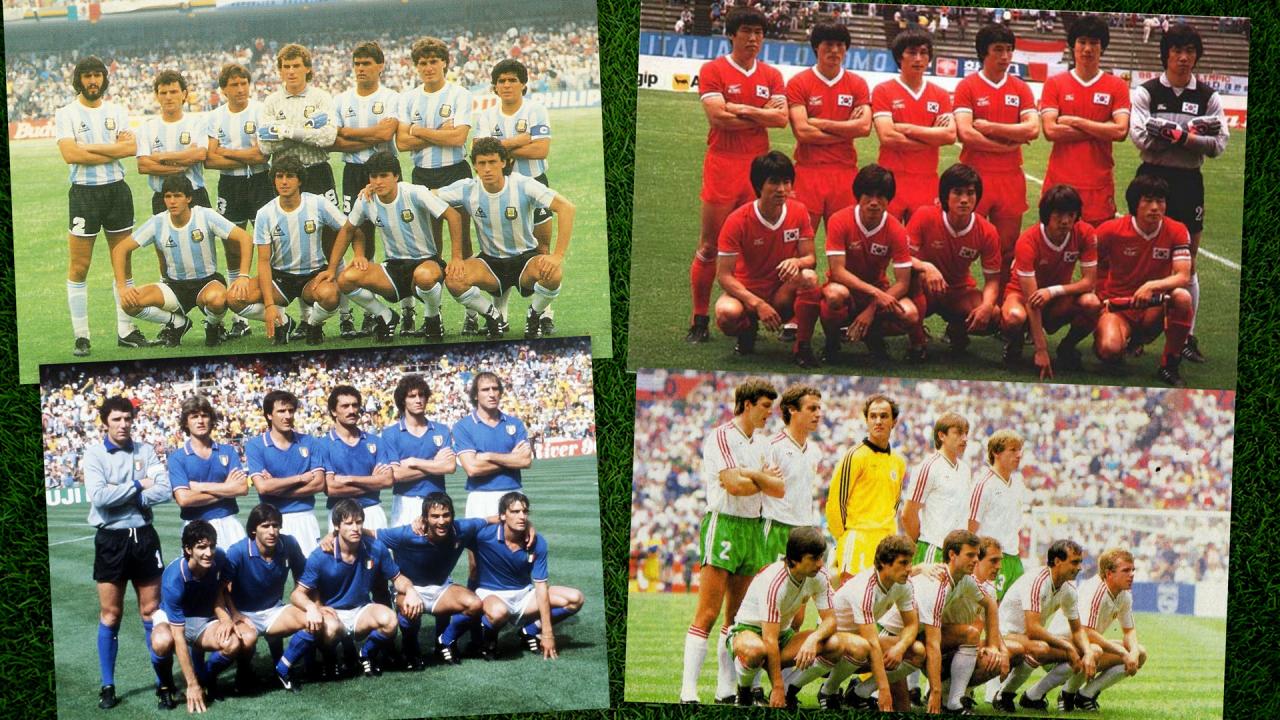
Group B was represented by the teams of Mexico, Paraguay, Belgium and Iraq.
The Aztecs have pretty much updated their roster. Bora Milutinovic, who commanded the Mexican national team, contributed to this circumstance. Immediately eleven new names were present in the application list of Mexicans. Among others, the surname Javier Aguirre stood out. The attack was played by the incomparable striker of Real Madrid – Hugo Sanchez.
The Paraguayans were brought to the tournament by Cayetano Re, a participant in the 1958 World Cup, and the owner of the Pichichi trophy of the 1965 season. Cayetano managed to unite the ardent Paraguayans into a competent team, which lacked, perhaps, only technical skills. Roberto Cabañas and Julio Romero became the opening of the World Cup from the side of the Red Wings.
The Devils from Belgium have undergone a serious rotation from the coach Guy Tees. The defensive line was completely updated, which was in a state of “restructuring” until the end of the Belgian performance at the World Cup. Exactly the same situation was with the midfield, and only in the attack there was a pair of Clasen – Veit, who played all the matches of their team in the tournament.
The Iraq Exotic team was led by the Brazilian Evaristo de Macedo 4. The strongest player of the lions of Mesopotamia was Hussein Said, but the role of leader, already in the course of the championship, was taken over by Ahmad Radi.
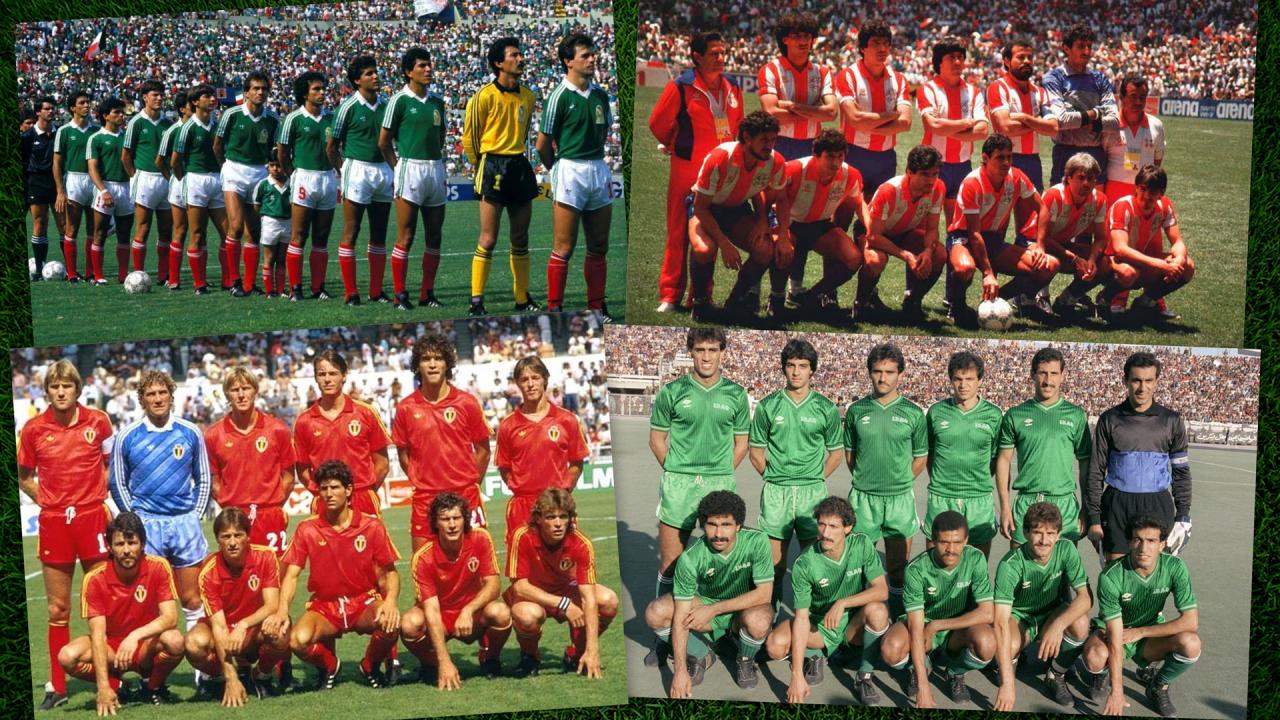
The national teams of the USSR, France, Hungary and Canada ended up in group C.
The Soviet team was prepared for the championship by Valery Lobanovsky, who replaced Eduard Malafeev, who had passed the selection, on the coaching bridge. Rinat Dasaev stood at the gate. The defense was supplemented by Oleg Kuznetsov, and the charismatic Alexander Bubnov. The center of the field is strengthened by Yaremchuk, Yakovenko, Zavarov, Aleinikov and Rats. The attack was noted by the strongest players – Oleg Blokhin, Sergei Rodionov and Igor Belanov.
The French were able to keep all their leaders. Platini, Battiston, Tigana, Rosto were ready to play in the Mexican World Cup. The young Papen was sent to help them, and the already experienced Yannick Stopira.
The Magyars did not depart from their tradition – the new head coach of the Hungarian national team, Gyorgy Mezei, assembled a team based on Honved and Videoton, the leading Hungarian clubs. The team's main think tank was Lajos Detari 5.
Englishman Tony Waiters prepared for the World Cup Canadians. The Reds managed to distinguish themselves with one remarkable achievement – five players of the national team were free agents at once, and midfielder Pacos was even announced for the semi-professional club Victoria.
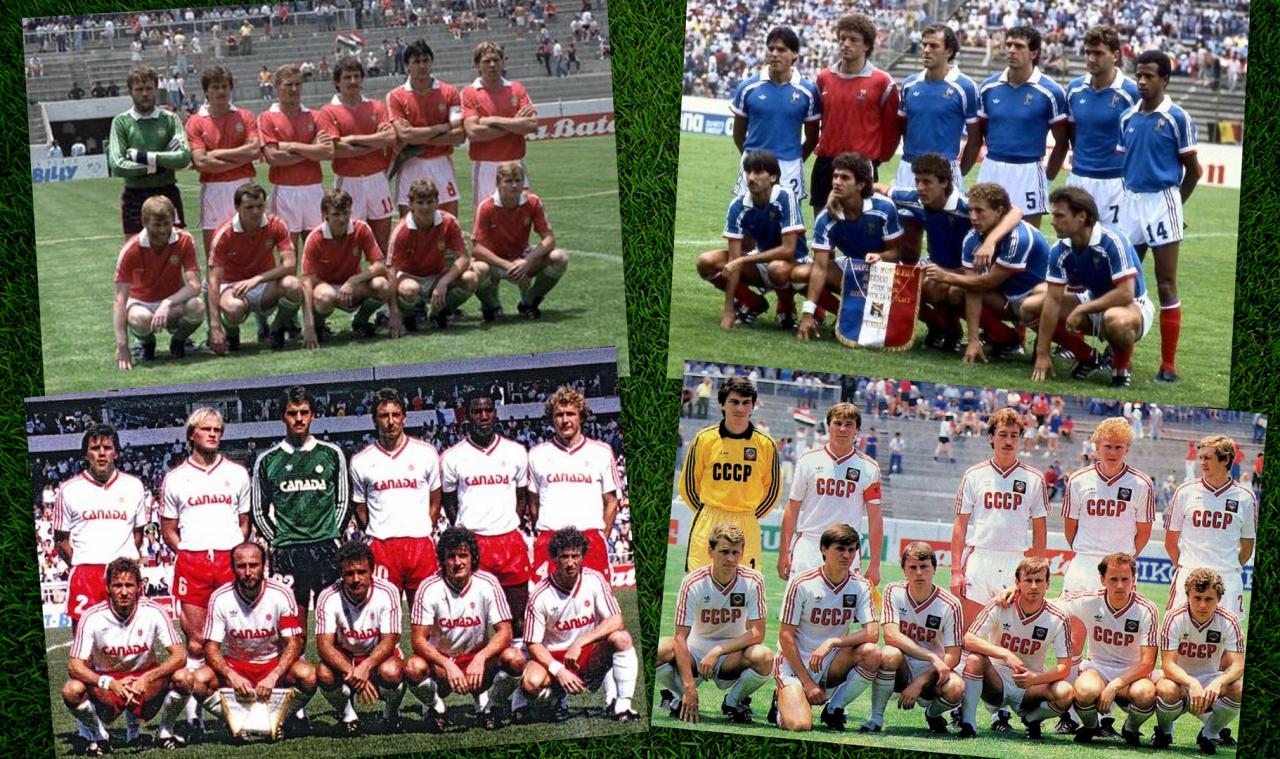
Group D consisted of Brazilians, Spaniards, Algerians and Northern Irish.
Tele Santana, who coached the Selesao, faced a number of problems. The players refused to play under his leadership, and Zico was injured just before the World Cup. The composition of Brazil could hardly be called optimal. Socrates and Zico did not understand Santana's attitudes, and only one of the four strikers, Karek, was different in attack. In the absence of Zico's optimal form, Alemao gradually became the leader of the team.
Spaniard Miguel Munoz had excellent players at his disposal. Goalkeeper Andoni Zubizarreta. The Butcher of Bilbao Goikoechea on the defensive. Victor is in the support zone, and the wonderful duo of strikers Butragueno – Salinas, who terrified any defense in the world.
The team of Northern Ireland was marked by only one new representative. Billy Bingham left the task of defending the colors of the flag to the same players as in 1982. The only exceptions were two O'Neil defenders – MacDonald.
Desert Foxes had a wide representation in Europe. Algerians played in the championship teams of France, Portugal, Belgium and England. Rabah Madjer was the leader of the attacks, and Fawzi Mansouri became the stronghold of the defense.
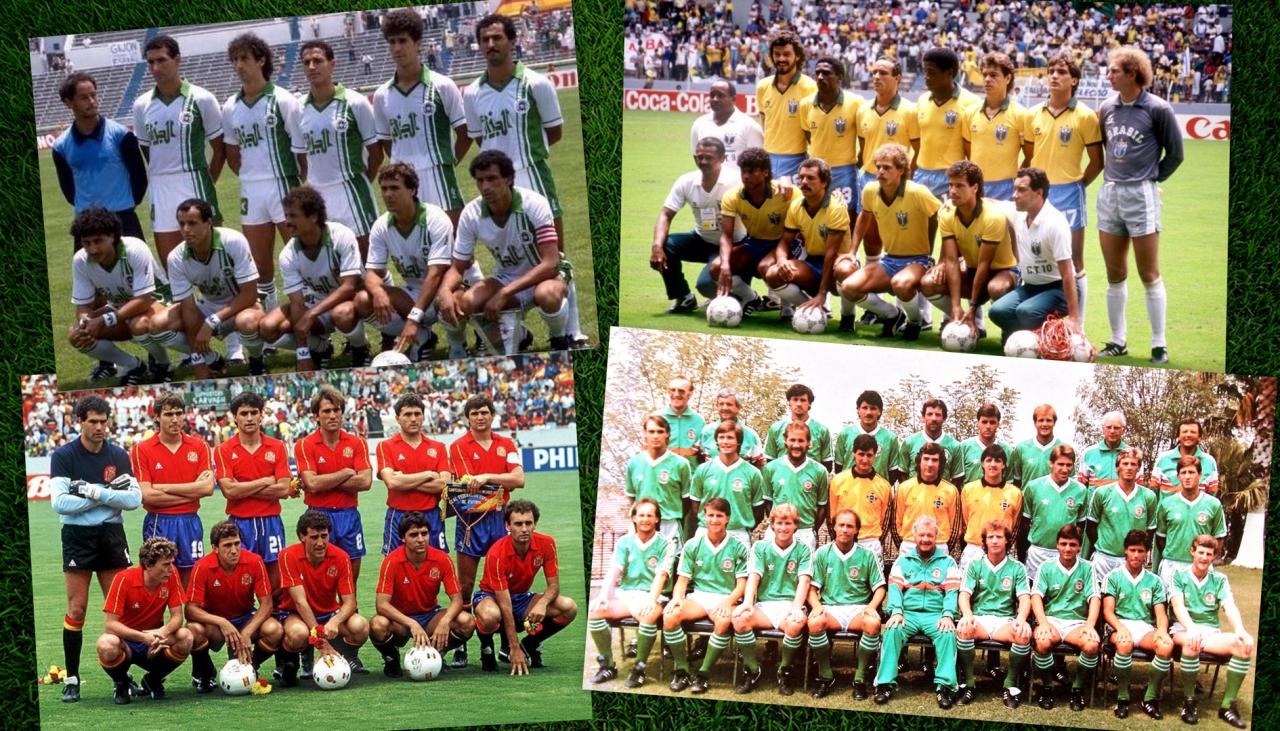
Teams from Denmark, West Germany, Uruguay and Scotland fought for the victory in Group E.
The favorite of the quartet were the Danes, led by the German Sepp Piontek. By the standards of 1986, the Danish team was notable for the excellent selection of performers and the competent leadership of Piontek.The German, with his inherent scrupulousness, managed to build an amazingly combat -ready team. Defenders Martin Olsen, Ivan Nielsen, Yon Sivebek. Midfielders Yang Melby, Yesper Olsen, Michael Laudrupe. Forward Crash. Each of the above player of Denmark was a powerful game unit, and played in the leading club of Europe.
The German national team was headed by the great Franz Beckenbauer. Kaiser very meticulously staffed his team. Schumacher was entrusted with post number one. Brem, Ferster, Jacobs and Bertold received their chance in defense. Lotar Matteus, Felix Magat and Pierre Littbarski compiled a trio of midfielders. In the Bundestim attack, she had performers in the person of Feller, Rummenigga, Alloofsa and Heness.
Charruya were represented by a rather interesting specialist – Omar Borras 6. Borras managed to assemble a very strong team, the task of entering the final was set. The captain of the team was Jorge Barrios – an eccentric midfielder of the Greek Olympiacos. The attack was played by the played three in the person of Antonio Alsameeni, Jorge and Silva and Venansio Ramos.
The Scots trained under the leadership of the future Sir by Alex Ferguson. There was an unthinkable competition between Jim Leighton and Andy Goram at the gates of the “Highlanders”. “Veterans” performed in the midfield – Graham Sunes and Gordon Strachan. The trio of attackers was extremely disappointed. Steve Archibald, Charlie Nicholas, Paul Starrrock did not score a single goal in the framework of the group stage.
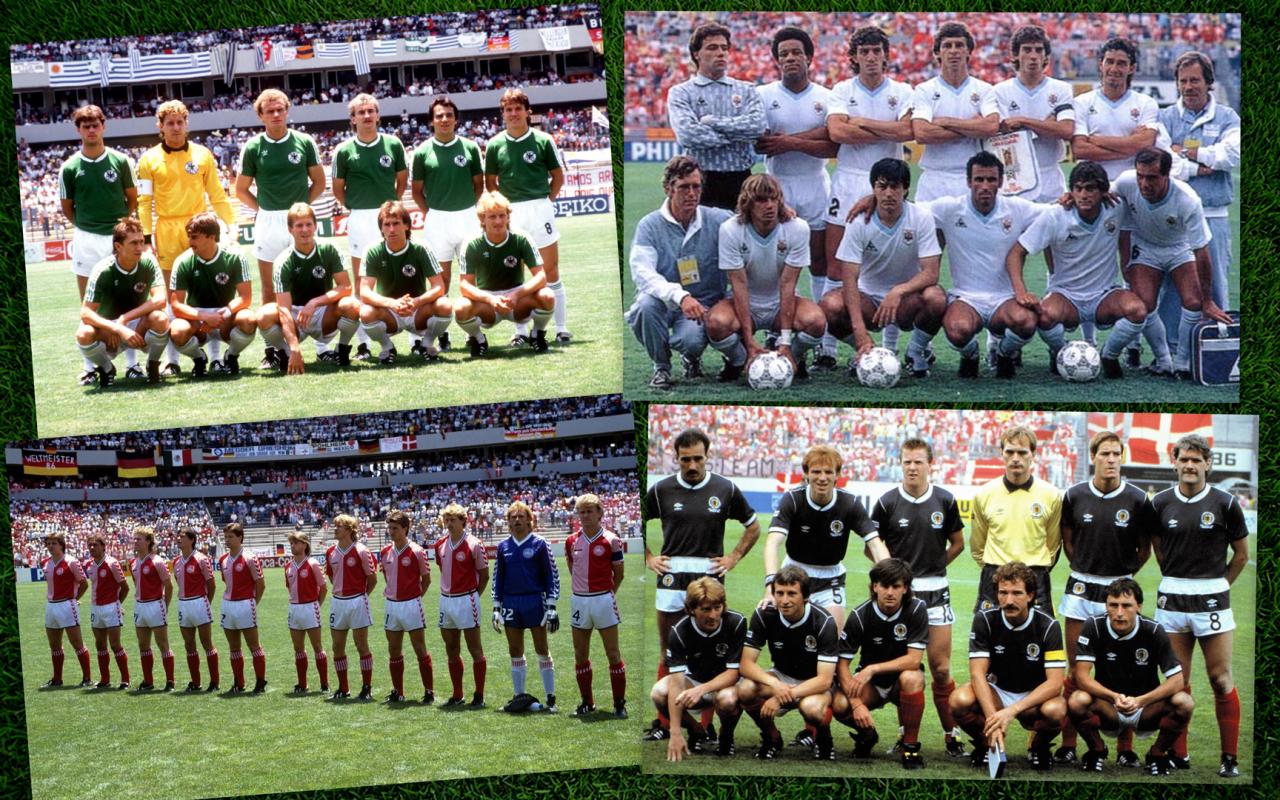
The final four were the prefabricated Morocco, England, Poland and Portugal.
The Moroccans became the dark horse of the championship. The Brazilian mentor of the Atlas Lviv – Jose Faria, set up his players in the most serious way, although he had highly qualified performers.
The England team came to the uniform with the head coach of Bobby Robson. Despite the young generation of the goalkeepers, the role of the guard of the gate was taken by the thirty -six -year -old Peter Shilton. Stevens – Sense – Butcher were pilots of defense, and the midfield line was composed of leading players in English clubs. Glenn Hoddle, Brian Robson, Chris Waddle, Peter Reed, Steve Hodge – these players dreamed of getting leading European clubs. In the attack, all hope was on Gary Lineker – the forward of Everton.
Anthony Pekhnichka prepared the Polish national team for the World Cup. Not possessing a wide choice of midfielders, the Pokhnik completely and completely trusted the attack in the person of Zbignev Bonek, Vlodzimezh Smalyk and Yana Urban. However, the rate of Anthony did not play.
The European Celeso, after long twenty years, was finally able to take part in the championship of the planet. The mentor of the Portuguese was Jose Torrish. The place in the gate was disputed by the age goalkeepers – Manuel Bentu and Vitor Damash. The attack was represented by the forwards of Porto and Benfica – Homish 7, Futra, Dyamantin and Aguash. Otherwise, it was possible to single out only Antoniu Sauzu and Antoniu Oliveira.
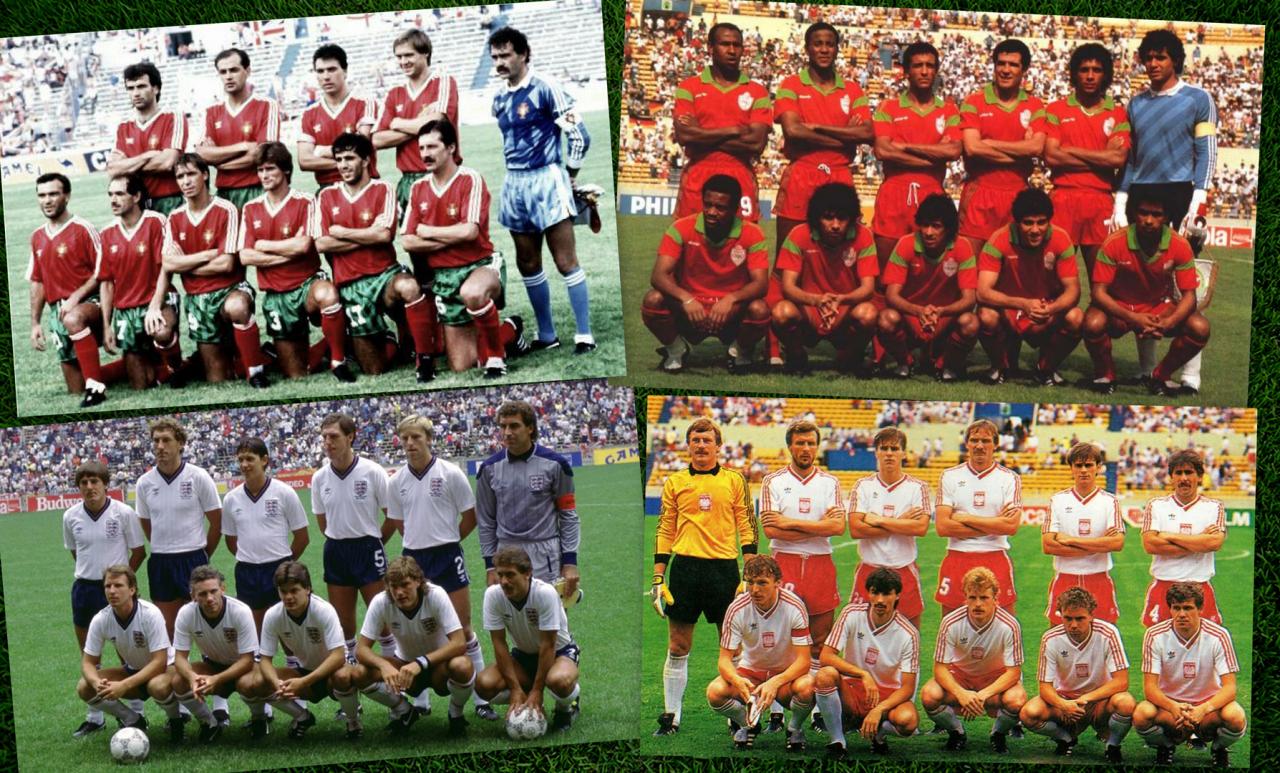
The Mexican World Cup got its start on May 31, 1986 at 12:00 local time. The opening match was a duel between Italians and Bulgarians. On Altobelli's goal, the lions responded with Sirakov's shot, and the match ended with an unexpected misfire of the world champions. In the second match of the group, A albiceleste outplayed the Koreans with a score of 3:1. An amazing match happened in the second round. The national teams of Italy and Argentina, having many opportunities for scoring, parted in the world 1:1, and Altobelli replenished his personal account. Another draw happened in the confrontation between the teams of Bulgaria and the Republic of Korea. The final games could hardly be called decisive, because the Italians and Argentines have already secured tickets to the next stage, and the Bulgarians managed to take third place. Another goal was scored by Alessandro Altobelli.
The Mexicans did not become hospitable hosts for their opponents. The Aztecs beat the Belgians and Iraqis, and drew with the Paraguayans. These results allowed the Mexican team to take first place. Teams of Belgium and Paraguay fought for the second place, and the latter succeeded more. The Devils were third only thanks to two draws. By the way, in 2018, the goal of the Mexican Manuel Negrete against the Bulgarians is recognized as the best goal in the history of the World Cup.
In group C, the first two places were occupied by the teams of the USSR and France. The Soviet players did not leave a stone on a stone from the Hungarians – 6:0. The French hardly beat the Canadians – 1:0. The fate of the first place was decided in the face-to-face confrontation between the teams of the USSR and France. However, the teams played a draw 1:1, and in the next round they consistently outplayed the Magyars and the Canadians. The result of the struggle was the same number of points, but the best goal difference guaranteed the USSR team the first place. This achievement was facilitated by the amazing scoring instinct of Igor Belanov, who, following the results of 1986, received the Golden Ball.
Group D did not show the world a single sensation. The Brazilians very calmly outplayed the Spaniards, Algerians and Northern Irish, and finished with a 100% score. An extremely beautiful goal was scored by the Brazilian defender Josemar in the match against Ireland. Red Fury, which made a misfire only with selesao, thanks to two subsequent victories, occupied the second line.
All the most interesting events took place in the two remaining quartets. The Danes managed to overtake the Germans in the fight for the first place in Group E. The Scots were beaten with a score of 1:0, and the Uruguayans got nuts – 6:1. The German national team also failed to provide decent resistance to the Danish team, and lost with a score of 2:0. As a result, the Bundestim was in second place, and Uruguay finished third. It is worth mentioning that in the match between Uruguay and Scotland, the fastest removal in the history of the World Cup happened – Jose Batista was sent off 52 seconds after the starting whistle.Surprised administrator of the national team, saw the batist in the locker room asked: “How did you manage to leave if the anthem did not finish playing?” Batista could not answer. Nevertheless, Uruguay sensationally took place in 1/8 having a negative difference in balls, and only 2 points scored.
In the four with Litera F, something incomprehensible was happening. The Moroccans played two “dry” matches with the Poles and the British, and then managed to beat the Portuguese. Of course, this fact has become a world sensation. However, in fairness it is worth noting that Celeso announced a strike after the first match. Having outplayed the British, the Portuguese team counted on generous tips, which she never waited. Proud Europeans refused to perform in full force, and decided not to fight for prizes. It is this factor that Morocco players took advantage of. As a result, the Atlas Lions took the leading place of their group. For the second place, a serious dispute broke out between the national teams of Poland and England. They beat the Portuguese, but lost the British themselves, and were able to claim only the third line.
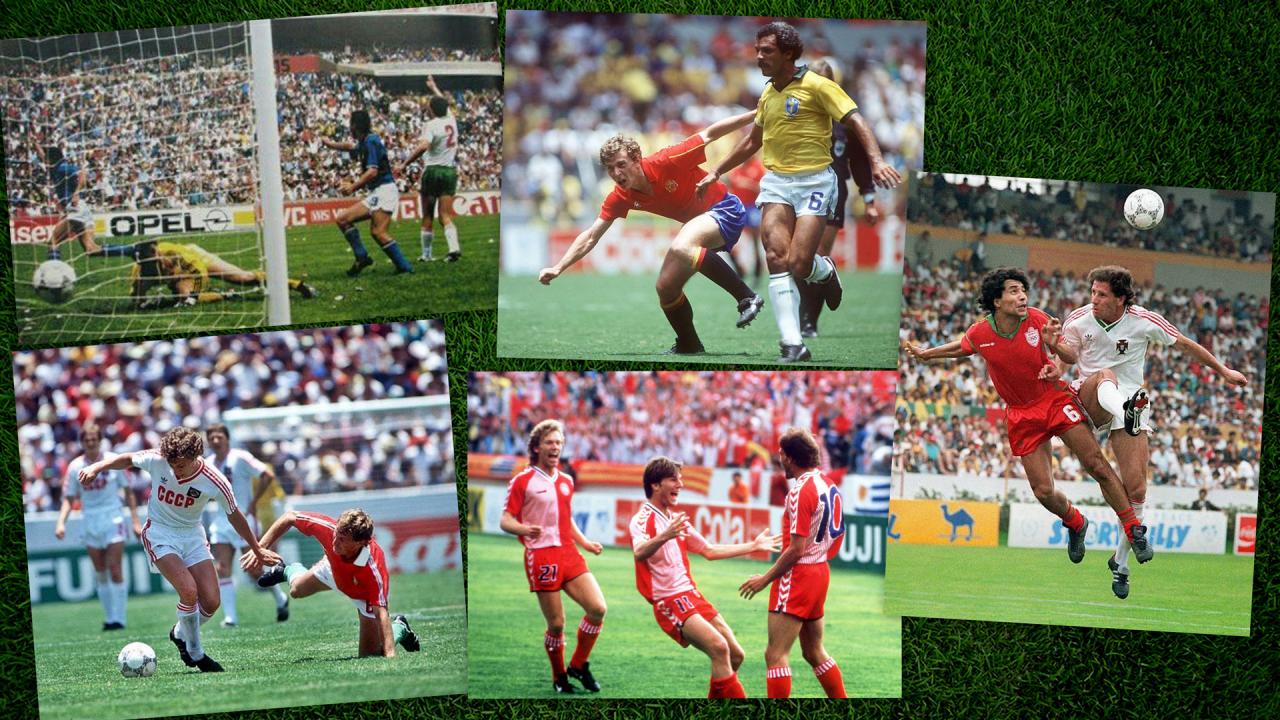
The matches of the 1/8 final stage started by the game of Mexico – Bulgaria, which took place on June 15 at the Aztke stadium. The owners of the tournament calmly outplayed their opponents, and went to the quarter -finals. The opponent of the Mexicans became the Germans who won the Moroccans in a difficult match. Only at the 90 minutes Lotar Matteus scored the winning goal of his team. Celeso easily defeated the Poles – 4: 0. The French team, with a score of 2: 0, left the wrongdoing of Italians who put up the title of world champions. The Spaniards defeated the Danes thanks to the poker Emilio Botrageno. The Forward of the Red Furia turned the move up the match upside down at the 43rd minute of the match.
It is noteworthy that in the match of Spain – Denmark three penalties were assigned, which were successfully implemented. The most memorable match of this stage was the game of the USSR – Belgium. At the 27th minute, Belanov opened the score, and in the 55th minute, Shiso restored equality. At the 70th minute, Belanov issued a double, but after seven minutes, Kulemansa equalized the score. The match went to overtime. The shock ten minute of the devils found Soviet football players by surprise. Demol at 102 minutes, and Klaysen at 109 scored the victorious goals of the Belgian national team, sending the USSR national team to their homeland. In the remaining matches, the British were stronger than the Paraguayans, and Albiseleste minimally outplayed Charruya.
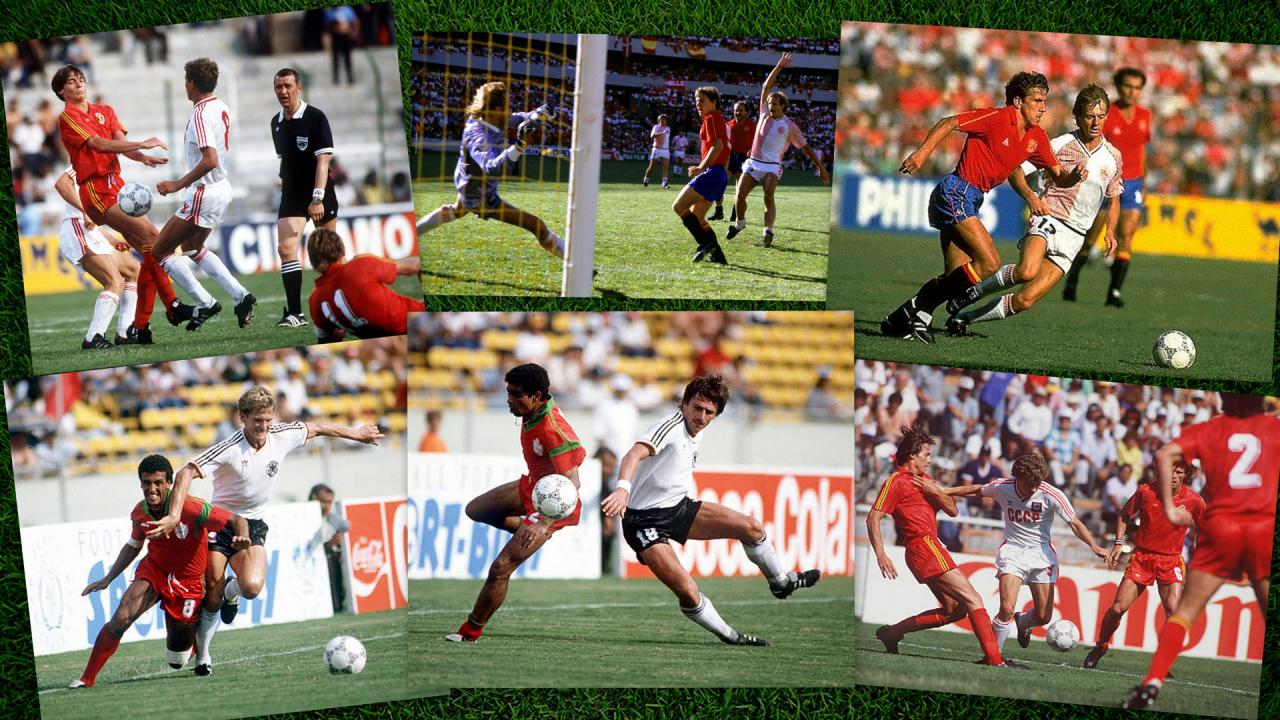
All quarter -final matches without exception became amazing. The Aztecs and the Germans could not score each other for 120 minutes of the game, and the winner was revealed by the penalty series. A magnificent game was demonstrated by Schumacher, who retorted the blows of Kirarte and Servina. Bundestim went to the semifinals thanks to the victorious blue of the Lottery of Matteus. The French and Brazilians also found out relations in the series of post -match eleven meters. In the main time of the game, Karek and Platini were noted with goals.It is very noteworthy that it was Michelle that was the only of the Frenchmen from the point. Celeso was much less successful – Socrates struck the goalkeeper, and Cesar in the Stan. No less epic was the quarterfinals of Belgium – Spain. Culesans brought the devils forward at 35 minutes. Before the final whistle, Huang Senor equalized the score, and the fans were invited to observe the third in the landslide of the post -match eleven meters. The Belgians were impeccable – five out of five strokes reached the goal, and Pfuff retorted the blow of Eloe. However, all three quarter -finals did not stand next to the fourth game. Argentina – England. Perhaps, in any words it was impossible to convey the atmosphere that reigned around this match. The fault of the 1982 Falkland War. “Although we said before the game that football had nothing to do with the war for the Malvinsky Islands, we knew that the British killed many Argentine guys there, like small birds. And this game became revenge ” – after the match, Diego Maradona will say. In, Maradona was a lively example of the saying that all the means are good in war. There was 51 minutes of the game when Diego went to the penalty area to compete for a riding ball with Peter Schilton. In the highest jump of Maradona, he crossed the ball into the net with his left hand with his fist, and the referee Namer recorded the capture of the gate. This goal will cause many years of debate among fans. He will be called Maradona a hero, and a coward. Some will idolize Diego, and some write his name with a small letter. By the way, after the goal, none of Maradona’s partners congratulated him. Diego himself will say that the goal was scored partly his own head, and partly by the hand of God. Although initially Diego will declare that it seemed to him that Shilton personally threw the ball into the goal. However, it does not matter, because the goal was counted. After another four minutes, Maradona will turn into a legend. His cross in the penalty area of the British will be crowned by the stroke of Birdley, the batcher, Fenwick, the raid and Shilton himself. In just ten seconds of Maradona, from his half of the field, he reached the Gate of Alien, outplayed five British, and sent the ball to the net. The “hand of God” eclipsed the “bare century”. “John Barnes and I sat on a bench, opening his mouths when Maradona, grabbing the ball in his half of the field, went through half of our team and scored a goal. I will never forget his goal. At the same time, I wanted to applaud and cry, ”Kris Waddle commented on the historical goal. Even the Lineker goal did not help the British. Maradona almost alone outplayed the England team, and forever entered his name into a football history. After the match, Roberto Perfumo will put the final point – the “icon” of Argentinean football: ”In 1986, there was enough victory in this match over England. The winnings of the World Cup faded into the background. The victory over England was our real purpose. ”
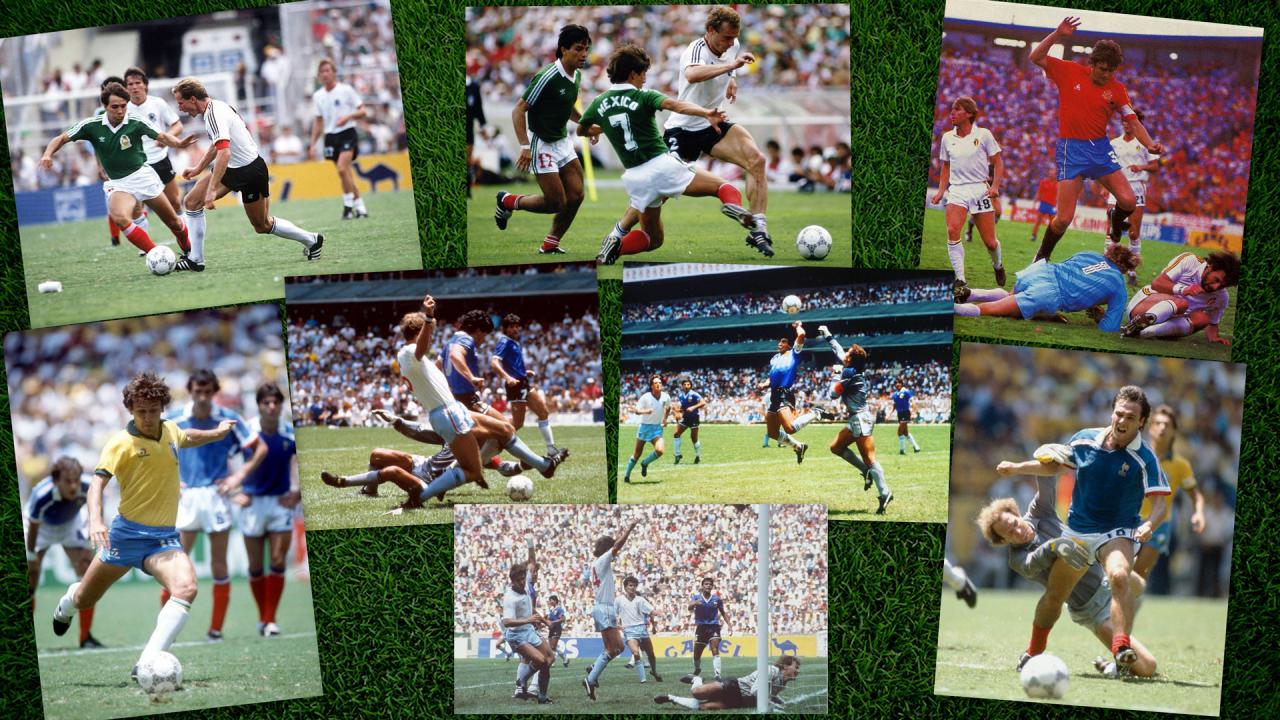
The semi -final matches have become the diametral opposite of the quarterfinals.The Federal Republic of Germany achieved victory over the French. The “fast” goal of Brem, and the “late” goal of Feller set the final score 2: 0 in favor of the Bundestim. Albiseleste completely and completely trusted their leader in the person of Maradona, and Diego did not let down his team in the match with Belgium. At 51 and 63 minutes, Maradona scored his next goals at the World Cup, and brought Argentina to the final.
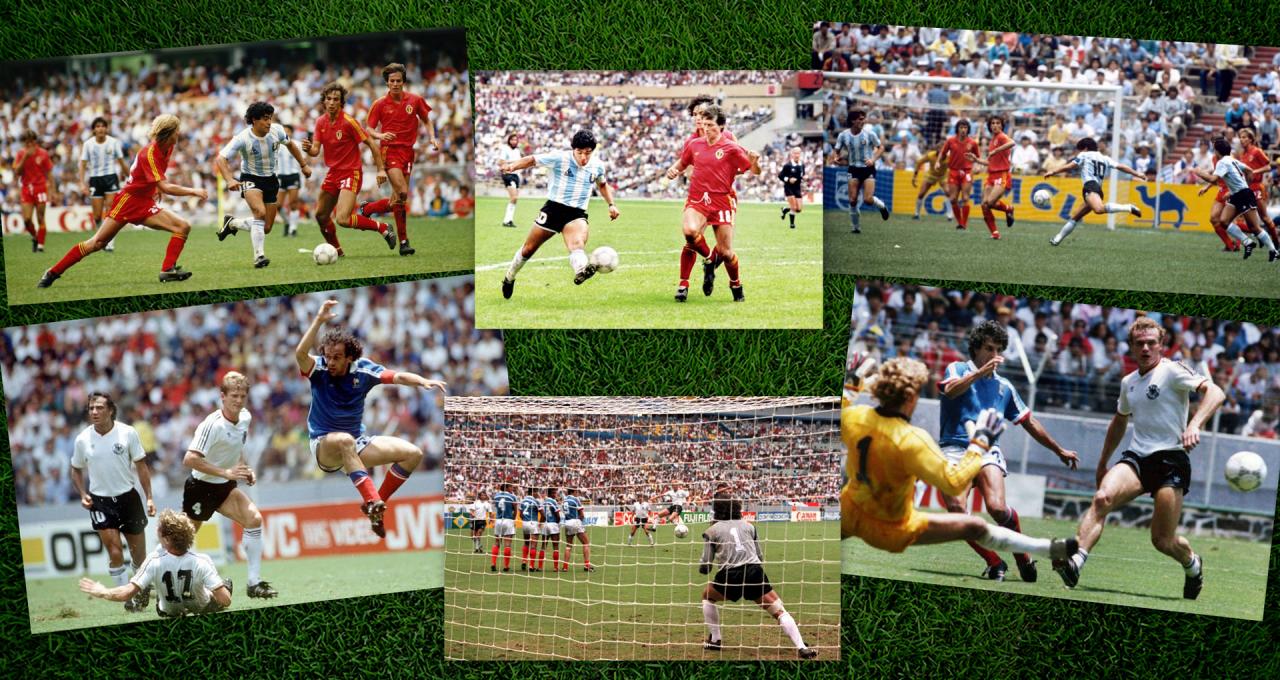
The day before the decisive match, a game took place for third place. Spectators gathered at the Kuatemock saw a real feast of heads. At the 11th minute, the score opened the scoop, but in the 27th minute Ferreri restored the parity. Shortly before the break, papen brought “tricolor” forward. At 73 minutes, Klassen easily outplayed the French goalkeeper, and the numbers on the scoreboard again became the same. In extra time, the French were stronger. The goals of Zhengini and Amoros became a sentence for the Belgian devils.
On June 29, 1986, the Mexican Aztke adopted the final of the World Cup. Albiselest met with Bundestim. The match turned out to be quite melted. In 23 minutes, Jose Brown outplayed Schumacher. At the 55th minute, the Argentine account doubled Waldano. Despite the situation, the Germans did not even think to give up. In eight minutes, Rummenigga and Felier managed to equalize the score, but there was no strength to the ending of the Bundestim. Khorhe Burruchaga scored the third goal of Albiseleste, and five minutes later the Brazilian referee Romualdo Filo gave a final whistle.
The Argentine national team won the second world title of world. Daniel Passarella received a gold medal, not playing a single match in the tournament, but became the first Argentine, who was a two -time world champion to this day.
“Before the start of the 1986 World Cup, the state of the team was catastrophic. We played comradely matches not the strongest clubs. Bilardo gave installations that no one understood. After his installations, we also had to translate his words to us. Ask Waldano, if you do not believe. He went out onto the field and did not know what he had to do. The same goes for Burruchag. So the merits of Bilardo is that Albiseleste won the world title of world champions. The players did everything, and I myself played the way I considered it necessary, ”summed up the performance of his national team at the Diego Maradona mundial.
In general, the Mexican championship has become one of the most contradictory football championships in history. The Colombians abandoned the mundial, and the Portuguese announced a boycott already during the tournament. Maradona scored his hand, and the referees did not notice violations of the rules. No matter what it was, the Argentines took the world champions Cup to their hands. Including, to the hand of God.
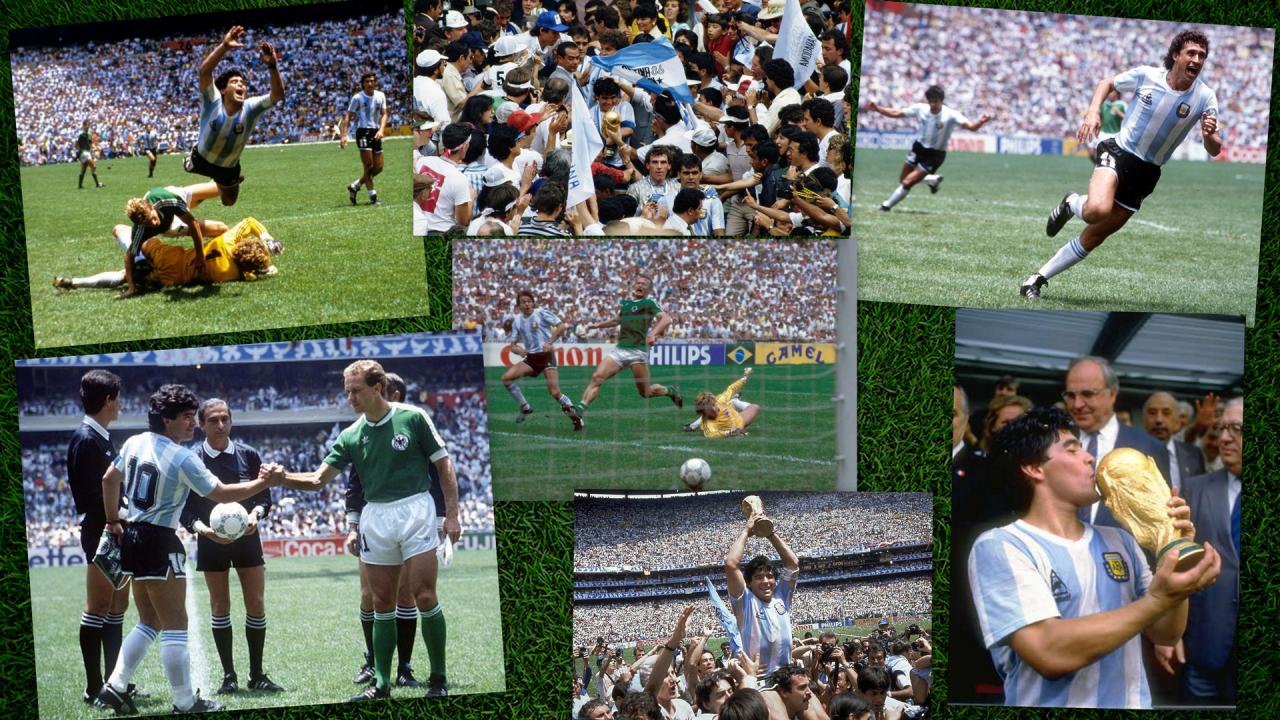
1 A remarkable fact from the biography of Terry Butcher:
Butcher was famous for his unbridled disposition and complete indifference to various types of injuries. During the performance for the Rangers, Butcher played three matches with a fracture of the fibula, while desperately defending his gates.
2 A remarkable fact from the biography of Jose Kuchuff:
Kuchuff in childhood dreamed of becoming an engineer, but the conditions in Cordov were such that Jose chose the profession of a football player who was practically not paid. The player’s father did not approve of his son’s hobby, and forbade him to attend training. The first coach Jose had to personally convince the father of the football player. Kuchuff for a long time was one of the Argentine people who were hoping, but waited for a call to the national team only at the 1986 World Cup.
3 A remarkable fact from the biography of Pietro Verkhovod:
Pyotr Ivanovich Verkhovod was Italian defenders of Ukrainian origin. A native of the city of Starobelsk, moved to Italy in 1960. At the time of the end of his career, the Verkhovod spoke 563 matches, lagging behind Dzoff, Maldini and Paluki. On April 1, 2003, the Verkhovod said that he was ready to resume his career in order to beat the achievements of his “compatriots”, however, did not do this.
4 A remarkable fact from the biography of Evaristo de Masedo:
The Iraq team coach was noteworthy that when he was the player, he moved from Barcelona to Madrid Real.
5 A noteworthy fact from the biography of Laiso Detany:
In the summer of 1988, the details moved from the German Aintracht to the Greek Olympiacos. The amount paid for the player was 8.7 million euros. At that time, the detail of the detail became the second in value in the world. On the first line was Diego Maradona.
6 A remarkable fact from the biography of Omar Borrass:
Before the coaching career, Borras worked as a lifeguard on the beach. A little later, Omar was a volleyball coach, athletics and swimming. Only at the age of the year, Borras decided to concentrate exclusively on football.
7 A remarkable fact from the biography of Fernando Gomesh:
One of the most famous phrases of homes was as follows: To score a goal – how to get an orgasm.
*The opinion of Footmind may not coincide with the opinion of experts. The article is based on the facts of many sources, so some inaccuracies are quite possible.
